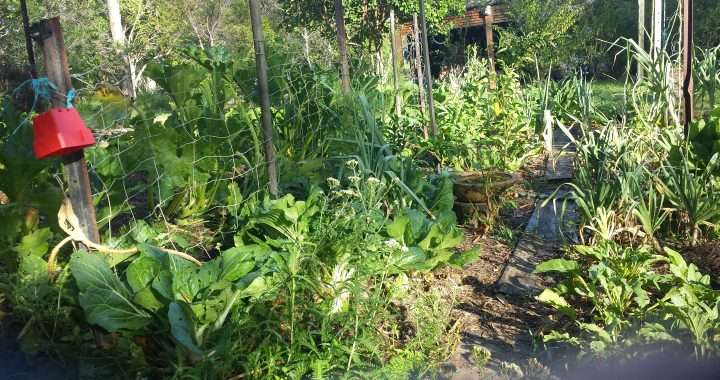
Controlling weeds organically in your vegetable garden
Author : My Food Garden
Controlling weeds organically is a concept that could transform a massively destructive herbicide industry. The “war on weeds” could be a thing of the past. Is this an impossible dream when up to 80% of our food in Australia is grown with toxic herbicides, pesticides and fungicides? Perhaps it will take a lot of time, but what you can do in your own food garden is completely avoid using these chemicals. So let us focus today on controlling weeds, not with toxic herbicides, but with organic methods.
Once you are prepared to accept that weeds are not your enemy, you will then have the opportunity to understand how important weeds are for your soil fertility and how you can tap into this wonderful gift of nature to bring greater productivity to your organic garden.
Different weeds grow over time, based on the changing state of your soil. When your soil has been pushed by too much cropping and fertility is low, often inedible and prickly weeds will grow. As your garden soil fertility improves, you will find more of your “weeds” are likely to be edible. Weeds add carbon and organic matter to the soil, minerals and hold the soil together, minimising erosion. They are a vital part of the living web in bringing soil back to life.
How do you work with weeds and at the same time maximise your food garden growing space and soil fertility:
-
Let weeds grow so you can see what nature is giving you. If you heavily mulch your garden every day of the year, the weeds cannot reveal themselves. I am not advocating here that you (a) avoid mulching completely (just do it when moisture retention is an issue) or (b) let the weeds completely takeover your garden.
- You will see predominant weeds growing at different times of the year depending on your climate conditions. With the weeds you have picked, there are three options in controlling weeds organically by using them as resource to give back their fertility to the food garden:
- Turn the weeds into a liquid or “weed tea”. Dilute the weed tea and pour it onto the garden once per week in same place where you picked the weeds. By potentising weed tea with biodynamic compost preparations, you speed up the soil healing process.
- Pick the weeds and pile them up in your compost heap and put them through a hot composting process which will generally kill the weed seeds but incorporate the qualities of the weeds into the compost.
- Pull out the unseeded weeds and lay them back onto the garden bed where you pulled them out. The worms will draw them back into the soil.
Its ideal to pick the weeds before they have seeded, but sometimes this will not be possible. With seeded weeds:
- Its better to use them as a weed tea, rather than laying them back on to the garden or in compost
- Avoid picking seeded weeds in the week before the full moon, as the strong moon forces in that week will help to germinate a lot more weeds.
In controlling weeds organically, more effectively manage your garden layout and planting by:
- Minimising the amount of soil in your garden which is left open with no growth, use as much space as possible for food plants and even have edible ground covers growing under your taller plants.
- In designing your veg garden beds, have cover on your paths using mulch or woodchip and use them to grow soil rather than weeds. This soil can be dug into your beds each year to top them up and then replace the mulch or woodchip.
- For larger growing spaces, ensure your planting is designed so you can hoe the weeds and get to them before they seed. Hoeing the unseeded weeds and leaving them on the beds feeds the soil
- In bed preparation, leave soil open to the sun for about a week and let weeds germinate and then hoe them into the soil.
- Use biodynamic peppers to stop your particular weed growing.
As you can see, there are many methods of controlling weeds organically. Last and certainly, not least, consider eating some your “weeds”. Come along to one of our Workshops or talk to us about our Coaching service.
Authored by Peter Kearney – www. beta.myfoodgarden.com.au

